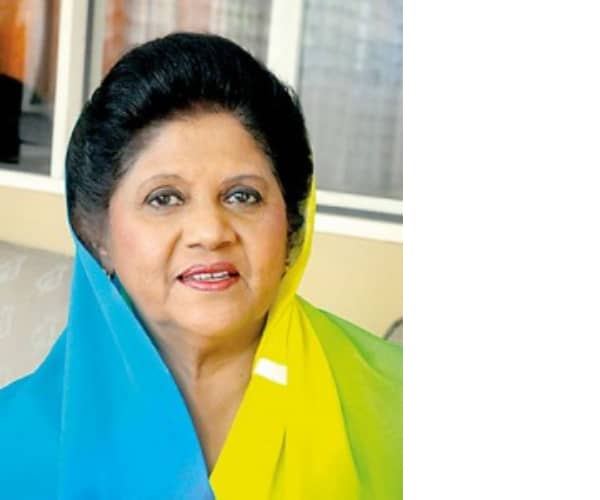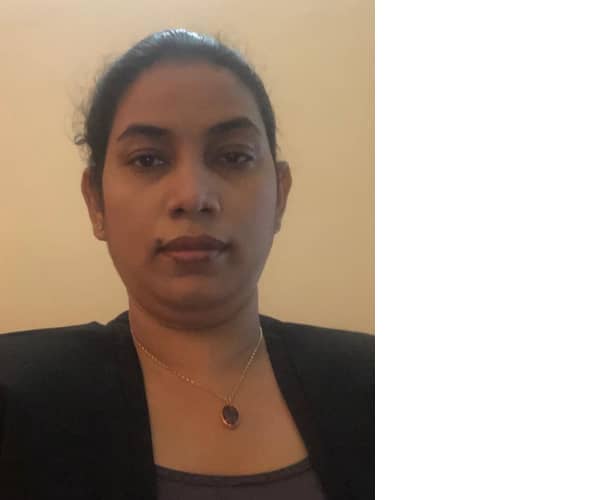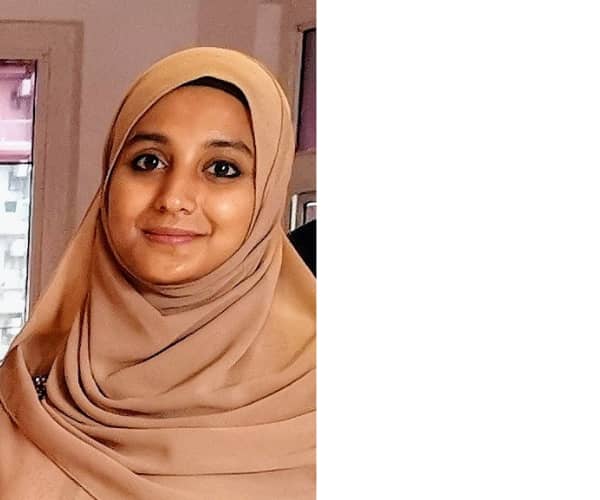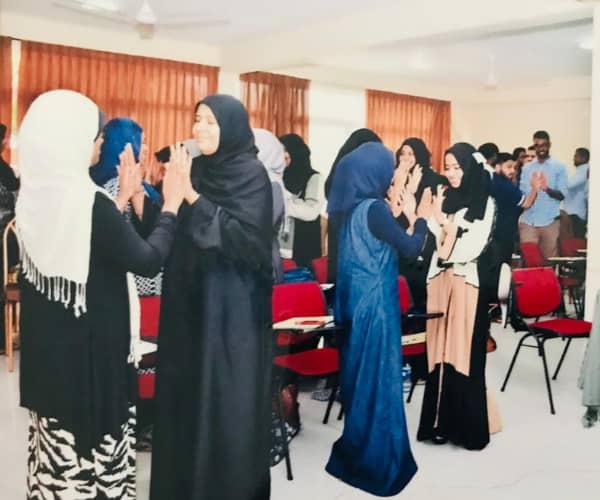
Mar 07 2022.
views 513Incidents of domestic violence, harassment and abuse were experienced by women during the pandemic period. However, even before the pandemic, women in underserved settlements have faced the brunt of poverty. As a means of bridging financial disparities between men and women, the Vocational Training Centre at the Sri Lanka Muslim Women’s Conference (SLMWC) has assisted many such women to face life with confidence. Today, both this vocational training centre and the SAFA Counselling Centre located at the heart of Kalubowila continue to serve women and the greater community with their experience. “Back in 2006, the Muslim Ladies Study Circle started a vocational training centre in Maradana,” recalled Sikhamani Ameena Faisz Mustapha, President of SLWMC. “We conduct many training programmes from cake making to computer, sewing, cookery and AMI and we are able to give certificates to our students since we work in collaboration with the Social Services Department.”

Those who come for training eventually end up having their own businesses. “All these girls want to get trained and have a certificate to start their own businesses. Some have sewing centres and similar ventures. Sometimes they invite us to their exhibitions etc. After training sessions, we have an exhibition and an award ceremony. They don’t have self-confidence when they come but when they leave they have so much confidence in them. Once they start bringing in money, the husbands start respecting them because most of them are drug offenders or are alcoholics. Now, these families are leading healthier and happier family lives.”
Gradually, their services expanded to Galle, Kahatowita, Panadura and Weligama. “With that expertise, we established the Sri Lanka Muslim Women’s Conference in Kalubowila in 2015. This place also includes a vocational training centre,” she added.
The SAFA Counselling Centre was established by Mustapha in 2015. “One of the main reasons to commence this centre was marital concerns among people,” opined Safrina Imran, a senior counselling psychologist. “We work on the psychological and emotional well being of adolescents, adults and anybody, irrelevant of the age. Initially, we were concerned about marital issues that people were going through as cases were high. On top of that, divorce rates too were high. As such, without focusing only on marriage and counselling we realized we had to do something pre-marriage as well. They needed vital education and awareness and we had a lot of pre-marital workshops before the pandemic,” she said.

Apart from that, outstation programmes too are done to educate the wider audience. For this, a team including Mr Asmiyas Saheed from the National Institute of Social Development assists them in conducting awareness. “Due to the pandemic, we started conducting online counselling programmes as well. Since we are a non-profit organization we charge a nominal fee for counselling but during the pandemic, we brought down the rates even further.”
She further said that most issues emerged on the home front during the pandemic and children were home all the time. “As a result mothers became abusive. They approached us with those concerns and asked us to guide them. We provided those services either online or in any medium they were comfortable with.”
Sharing her experiences, Nazliya Mohideen, another senior counselling psychologist said that A/L students were particularly affected during the pandemic. “A/Ls is a time where children have a lot of stress. The pandemic was bad and they have completely lost the focus of being an AL student. I personally have many clients who have shone during O/Ls but they have flunked their A/Ls. They were fed up and had no idea what to do next. That was a huge area to focus on. As a result, they have gone into depression and anxiety. They have become compulsive.” At SAFA the counsellors guarantee absolute confidentiality of their clients. Muslim as well as non-Muslim clients have turned to their services at times of need and the team is happy about the success stories of their clients.

The number of clients they get is also proof that people are reaching out for help. “This means there’s awareness. But a whole set of other clients require both psychiatric and counselling sessions. But in most instances, they only rely on medicines but not counselling. Some psychiatrists don’t ask them to refer to a counsellor. At one point they have realized that they need to talk. We have to educate them on how to come out of medicines and it’s a whole lifestyle change from sleeping habits to diet etc. We are helping them to build habits. There are a lot of cases with schizophrenia, bipolar and depression. Sometimes medicines don’t respond to these conditions. Therefore psycho-education is important,” added Imran.
The team believes that the only way to break the taboo on psychological counselling is through awareness. “We are happy that we have been able to serve the community. They have confidence and they know that there’s someone to turn to. Our service is not costly as we are a non-profit organisation. We are focused and it’s for women. Women are mainly suffering in silence and as women, we feel we need to do something and that’s why we started both these institutions,” Mustapha further said. “The pandemic was a drawback for families. Women were not used to having their husbands indoors all the time. To see their wife 24 hours wasn’t a pleasant experience for husbands either!” exclaimed Mustapha. “Some women told us that their husbands asked for plain tea all the time. Parents who had children attending kindergarten had to undergo severe stress as they had to sit with their children. Some mothers were eventually beating their children. The teachers were thinking about covering syllabuses and they weren’t aware of how parents would take it. The teachers were sending schoolwork daily and it was a challenge for most mothers and parents as they didn’t have knowledge about teaching children.”
“Therefore it’s important to have more awareness programmes for mothers because we don’t know for how long the pandemic would last. Mothers need to be taught how to cope via workshops or activities and that would help them to manage work with their children at home.”

As a parting message on International Women’s Day, Imran said that in terms of domestic violence it is normal to see women putting the blame on themselves when their husbands beat them. “But that shouldn’t be the case. Women need to come out of that mindset. If a man raises his hand on you then it’s his problem and not yours. Women don’t deserve it, but domestic violence happens both ways. There are women who hit their husbands too. However, if they need help there are support services they could reach out to.”
1 Comments
Azra says:
Jan 28, 2023 at 11:48 pmLike to join SLMWC Please contact on 0776955590 thank you